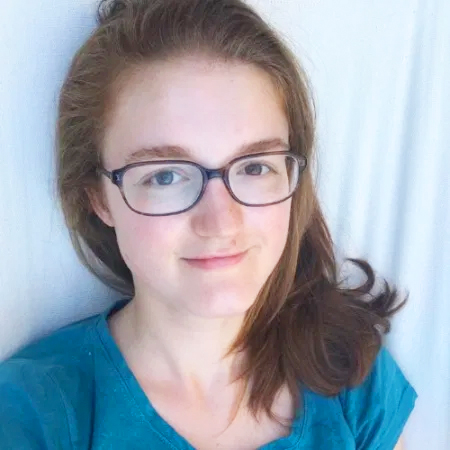-
 Foto: Pixabay/Jarmoluk
Foto: Pixabay/Jarmoluk
Lots of overtime, projects that almost always run until the thirteenth hour and uncertain academic career prospects. PhD students are under a great deal of pressure. Support is slowly growing, but there are no easy solutions.
During her PhD project, scientist Eveline had a tough time of it. A few of her experiments failed. And to make matters worse, no one took over her supervisor’s duties when he was ill for long periods of time on several occasions. ‘There were two other researchers from other universities involved in my project, but they were too far away to guide me properly,’ she says. ‘I struggled for months.’
‘I struggled for months’
Eveline doubted whether she should continue with her PhD project for a long time, she tells us on the telephone. She prefers that her real name not be published on this site, as she does not want to offend her former supervisor. “I thought I might be able to finish my PhD in another way at first, but eventually, I decided to stop.” She never finished her dissertation.
Workload
Eveline is not the only one who never obtained their PhD. Nearly one in 20 PhD students in Nijmegen drop out within the first 18 months, according to the figures Vox requested from Radboud University. A much larger proportion do obtain their PhDs, but almost never within four years – the timeframe usually given for a course of study. Only 6.5% complete their PhDs within four years (not including students at the UMC). 57% are finished after six years. More than a third do not receive their PhDs within two years of completing their projects.
Workload dossier
‘People are falling through the cracks.’ That was the statement made by the members of the Works Council at a joint meeting of Radboud University at the beginning of this year. The staff survey had previously shown that the already high workload among employees increased even further during the coronavirus pandemic. This week, Vox is trying to clarify what this means in practice, in a series of interviews on stress with (among others) IT personnel and schedulers. Also read scholars’ diaries.
Workload seems to have a significant influence on this. Approximately three out of five PhD students consider the workload ‘high’, according to a study published last August by the Netherlands PhD Network (PNN). The pressure on PhD students is a many-headed monster, with just as many tentacles. Poor supervision, teaching duties, publication pressure, stress over temporary appointments – these are just some of the issues that students face.
Professorships
To start with the end goal: it is becoming increasingly difficult for PhD students to follow academic careers. Of every ten young researchers who start PhDs, approximately eight want to continue in academia, while only one or two will ultimately get a permanent position.
This imbalance has always existed – not everyone has the necessary academic qualities to be a senior lecturer or a professor – but it has increased in recent decades (see the box). This is also the view of PhD student Ella Bosch, who has been working on the issue of workload within the Halkes Women Faculty Network and the Donders Institute. She has also recently led support sessions for PhD students, organised by the University.
‘There are many temporary contracts at the University, like those for PhD students and postdocs,’ Bosch explains, ‘but there are very few permanent ones.’ This creates a sense of competition between you and your colleagues. The result? Young researchers work themselves to the bone to do slightly better research and to write more or better papers.
‘Career uncertainties and the competition between colleagues both lead to pressure.’ For several former researchers who spoke to Vox for this article, this was their motivation for switching to jobs outside of academia.
Increasing number of PhD students
Until the 1980s, an academic career was something only pursued by connoisseurs. However, the situation changed in the 1990s, as research became increasingly international and the government wanted to encourage scientific quality.
The government also wanted to increase the number of highly educated individuals – the percentage of PhDs in Germany and the US was, and still is, higher than in the Netherlands. An assistant-in-training system was introduced, in which people had to write a dissertation in four years. Previously, academics did this ‘on the side’, parallel to their teaching and research tasks, with no hard deadline or conditions for advancement.
A financial incentive was introduced: universities would earn money for every student that finished their PhD. The sooner the students finished their dissertations, the better for academic housekeeping.
This largely explains the situation as it is today. However, the scheme did not help. In 2008, former Minister of Education, Culture and Science Ronald Plasterk transferred 100 million euros of structural funding from universities to research funding agency NWO. Consequently, this money was distributed as subsidies. The underlying thought was that competition strengthens innovation and quality.
Both developments had adverse effects on PhD students’ prospects. On the one hand, there was less structural money for permanent positions, like (senior) lecturing positions or professorships, and on the other hand, more and more PhD students (and therefore competitors) joined the process. After all, these were the people who had to do the scientific heavy lifting for all those NWO projects. The number of PhDs increased accordingly, from less than 2,000 (mainly men) in the 1990/91 academic year, to almost 5,000 in 2018/19.
However, the corresponding increase in permanent positions has lagged behind, as a recent report from the Rathenau Institute has shown.
‘Overtime is not incidental; the whole academic system is built on it,’ says Mark Vervuurt, PhD student at Radboudumc and PNN board member. ‘The high level of competition causes tremendous performance pressure in some fields. This is sometimes more demanding than people can handle. Some of the stories I hear scare me. I know people who work up to 60 hours a week, with occasional peaks of 80 hours.’
‘Overtime is not rare; the whole academic system is built on it’
These kinds of hours are necessary for getting the most out of a temporary appointment, for example. The greater the number of hours worked, the better the chances of a successful scholarship application. A grant often makes it easier to get a permanent position in fields with little money, like the humanities, or fields with a lot of competition, such as the sciences.
Supervisors
Communication with the supervisor was the first theme of support sessions for a reason, says PhD student Ella Bosch, laughing. ‘Guidance certainly plays a role in the stress that PhD students experience. Some supervisors are brilliant researchers but not good managers. And some are workaholics themselves, or have had to work very hard for their positions and project this onto their students.’
Supervisors can also be very demanding and put pressure on students to ‘deliver’, especially in departments that compete with the world’s best, says Willem Halffman, science sociologist and lecturer in science history at the Radboud Faculty of Science. The same supervisors sometimes have little time for supervision, partly due to increased project funding.
‘That’s where the money is,’ he says. ‘Even in disciplines where people used to do most of the work themselves, such as sociology, it is no longer possible to avoid appointing increasing numbers of PhD students and postdocs.’
As a consequence, the supervision time per PhD student is automatically reduced. Halffman: ‘Do the maths. If you want to speak to 15 PhD students for an hour at least once a week, your working week is already half full.’
‘Sometimes it’s a matter of incompetence or ignorance on the part of the supervisors,’ says Bosch. ‘And in the worst cases, it is simply abuse. Supervisors benefit from PhD students’ publications. This means there is a risk of exploitation. “I will be better off if you work well. So I ask you, or I just state, that you have to go about things a particular way.” ’
More students
Then there is also the workload that teaching PhD students brings. Vervuurt: ‘Many PhD students are meant to teach about one day a week. In practice, however, they often go well beyond that limit. Some have no formal teaching load at all, yet they are still expected to teach.’
Part of this educational burden comes from universities’ ever-increasing student intake, says Vervuurt. ‘The number of staff does not grow proportionately. PhD students and postdocs often pay the price for this.’
These teaching duties are stressful for a great many PhD students, explains Bosch, as they take up time meant for research. ‘When applying for grants, researchers are judged on their research results.’
Research time is, in fact, always in short supply for PhD students, says Bosch – there is a reason so many projects run out of time. ‘It is simply impossible to do it in four years. I didn’t make it myself.’
Despite the high workload figures, few academic staff report in sick; at Radboud University, this figure is only 22% in 2020. That is less paradoxical than it seems, says Vervuurt. ‘As a PhD student, you are constantly told that you are in charge of your project. And you do it because you are passionate about the subject. This means the bar for calling in sick is very high.’
Graduate Schools
Over the years, Radboud University has taken more and more measures to improve PhD trajectories. As such, there are now Graduate Schools. They ensure that PhD students have training, a guidance plan, and courses they can take for their professional development.
In practice, these schemes do not always work, says the ex-PhD student Eveline. When she got into trouble because of her absent supervisor, she had no idea who to turn to. ‘It would have been nice if I had had a second supervisor at Nijmegen. I later brought this up with the Personnel and Organisation department.’
The University will have new rules for PhDs in place in September
In order to reduce these problems in the future, the University will introduce new PhD rules in September. Policy officer Steffie Hampsink of the Research and Impact Strategy department contributed to this.
In its current form, the regulations only describe the formalities involved at the end of PhD projects, when the dissertations are almost finished. They only cover matters like the appointment of reading committees and when conferral dates can be scheduled. Hampsink: ‘Nothing has been recorded about the initial phases of the process. From September onwards, people will have to register in a PhD tracking system at the start of their trajectory.’ By following people from the start, the University can get a better idea of how many PhD students are on the campus.
Moreover, the tracking system, styled Hora Finita, should help with identifying problems earlier. For example, students will now have to fill in annual questionnaires that will only be visible to the coordinator of the Graduate School, and not to their supervisors. ‘They can see when a PhD student is not satisfied with their supervisors and can act on this.’
This should also help to counterbalance PhD students’ dependence on their supervisors and collaborative partners. Another part of the new regulations is the requirement for two supervisors. ‘This safeguards the four-eye principle and ensures that the one-to-one vulnerability disappears,’ says Hampsink. Finally, the University wants to raise the quality of supervision by offering training courses for new supervisors and masterclasses for more experienced supervisors.
Financing structure
The solution should not only come from better support for PhD students, says science sociologist Halffman, who is also involved in the action group WOinActie. ‘The dominant idea is currently: what can we do to help individuals. Ultimately, we must look to the system for a solution. To the funding structure and how we assess researchers.’
That is why he will be campaigning in Nijmegen next Tuesday, when almost all of the academic community is demonstrating for a ‘Normal Academic Standard.’ The academics are demanding that the government structurally invest an additional 1.1 billion euros per year into the university world.
For former PhD student Eveline, who quit her dissertation after her burn-out, the new plans and actions are coming too late, although she is not dejected about it. After her curtailed project, she left academia and now works in a classroom. ‘There hasn’t been a bad day yet.’





